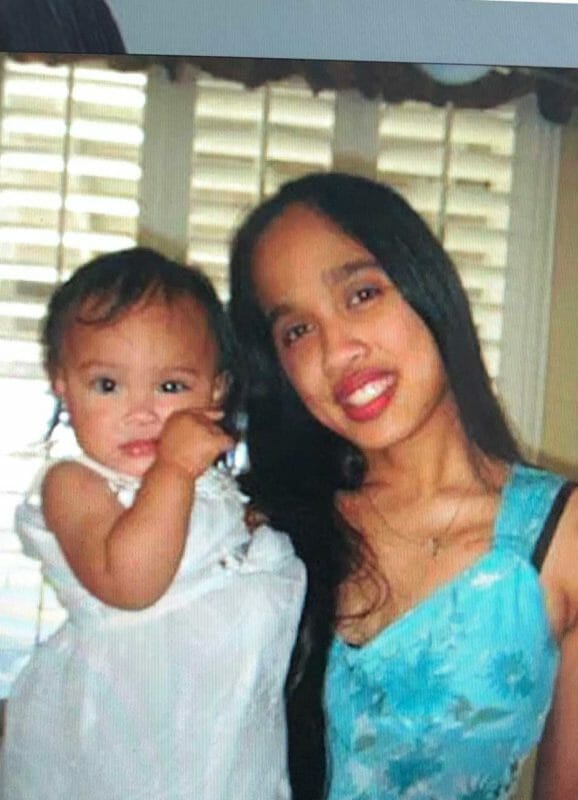Cardiac arrest survivor warns young Fil-Ams to take care of heart health

Jenylyn Carpio has many reasons for becoming a national volunteer for heart health awareness. AHA
When Jenylyn Carpio declares cardiovascular disease is the number-one killer of women, she is sending a personal message.
This year the San Diego-born Filipino American is among 12 “Real Women” named by the American Heart Association as national health ambassadors. Their role is to share their stories of survival from potentially fatal heart disease. Their mission is to inspire fellow females to pay attention to their own cardiovascular health and prevent catastrophic episodes as they had.
The resident of Murrieta, Riverside County in Southern California, called her appointment two weeks ago as an “honor and privilege” for giving her a platform to be with “strong and inspiring women in sharing our heart stories,” especially with the communities they represent.
Real Women is a component of AHA’s “Go Red For Women” movement to raise awareness of the prevalence of heart disease particularly among women. The “Class of 2022” comprises survivors of cardiovascular illnesses from across diverse racial and ethnic populations in the United States. They are all volunteers.
Carpio wants women to protect their overall health but specifically of their heart and brain. She responded to INQUIRER.net eloquently and authoritatively, enunciating and explaining terms rarely discussed outside the doctor’s office.
At 38, Carpio may seem underage to be speaking about the matter. In fact, she has been addressing the issue for almost 17 years.
Sudden cardiac arrest
She was a young wife and student with a two-month-old daughter on July 11, 2005, when she literally opened her eyes to a daunting reality as she awoke to a police officer’s flashlight on her face after she lost consciousness: She had just experienced sudden cardiac arrest.
Carpio was at the home of her mother, Jocelyn Saria, when the unexpected occurred.
“I woke up, feeling quite tired,” she recalled her disposition after her recent delivery and round-the-clock caring for an infant. “My husband felt it was best to go visit with my mother, help me catch up with sleep, recharge.”
Fredrik Carpio drove his wife and their baby, Linda Joy, to San Diego to her welcoming mom who was only too happy to help out. After lunch, Jocelyn offered to watch the baby and urged her daughter to take a nap. That was all Jenylyn remembers before seeing the police flashlight as her mother shook her to wake her up.
Luckily for Carpio her mother, a retired health care administrator, had training in CPR or cardiopulmonary resuscitation. She performed the life-saving emergency technique that ultimately saved her daughter’s life.
“I was not breathing normally, my eyes were rolling in the back of my head. It looked like I had bitten my tongue, so I had blood on my mouth. My skin color was changing, my body tensing into a fetal position,” Jenylyn depicted the scene that sparked Jocelyn’s maternal and health worker instincts.
Several hours and tests later at the emergency department, attending clinicians could not raise Carpio’s heart rate. Overnight they rush-ordered her childhood hospital records and interviewed her mother to understand her medical history. In the middle of the night, Jenylyn overheard the chilling words of a tech on the phone calling for “a cardiologist now.”

Jennylyn Carpio and her baby, Linda Joy. CONTRIBUTED
Clarity came overnight when Carpio’s cardiac history emerged. She had “fainted periodically” as a child. At 7, she suffered from “syncope” or fainting caused by a decrease in blood flow to the brain, typically from low blood pressure.
She says hers was “attributed to something else,” perhaps “dehydration” or exhaustion probably because she was “too young to be experiencing” the condition. Doctors “hyphothesized” the 2005 trigger to be her pregnancy, she said.
Jenylyn was diagnosed with LongQT or “condition of the electrical conduction system of the heart which prompts arrhythmia” that if undetected could lead to cardiac arrest, is the former patient’s simplified explanation.
Doctors performed surgery the following day. They placed an Implantable Cardioverter-Defibrillator or ICD, a battery-powered device.
“It sits under my shoulder blade connected to my heart. If it detects my heart not functioning sufficiently or if I’m having cardiac arrest, it shocks it to normal rhythm and revive me again,” she describes the device similar to a pacemaker in that it sends a signal when the heart rate gets too slow.
ICDs typically work for 8-10 years, but Carpio is hosting her fourth, she says with a chuckle, for technical rather than physiological reasons.
Family medical history
Only after her “second life” did she learn of her maternal family’s predisposition to heart disease.
High blood pressure is not uncommon on the side of her father Gentry Saria, but cardiomyopathy, stroke and other cardiovascular illnesses have claimed the lives of relatives on her mother’s father’s branch of the family, Jenylyn shares. Her maternal grandfather died from heart attack in his 30s, she added. The Sarias hail from Cavite City, Philippines.
A common culprit behind the ailment is Filipino food that “tends to be rich,” she mused. She believes that eating big “servings of fruit and vegetables” and “drinking plenty of water” along with “stress management” may counter caloric-diets. She herself indulges in walking, running and yoga.
Definitely wiser, Carpio wants to encourage the public to be proactive about their health. Ask questions, learn about family medical history, consult with the doctor about the safety of activities, she advises. “If it were not from conversations with my mom, I would not have known how prevalent heart disease and stroke was,” she emphasizes how she became her own advocate.
Long before her current designation as AHA national volunteer, Jenylyn was contributing to the cause of heart health by contributing her time at local fairs and festivals to increase awareness of the subject. Her daughter, now 16, knows how to perform CPR, she says proudly. (Warning signs and other heart health facts may be accessed at www.goredforwomen.org).
The pandemic has escalated her passion to take care of herself and her loved ones.
“I have to stay healthy especially these uncertain times” she says, affirming her ability to live a “full and active life” with an ICD. She and her “Real Women” sisters hope to influence women all over the world to “take back their rhythm” – a pun for pulse – with their personal playlists on AHA partner music platform Pandora. Jenylyn’s favorite is Celine Dion’s “That’s the Way It Is” and Gloria Gaynor’s longtime anthem “I will Survive,” with lyrics she truly takes to heart.

